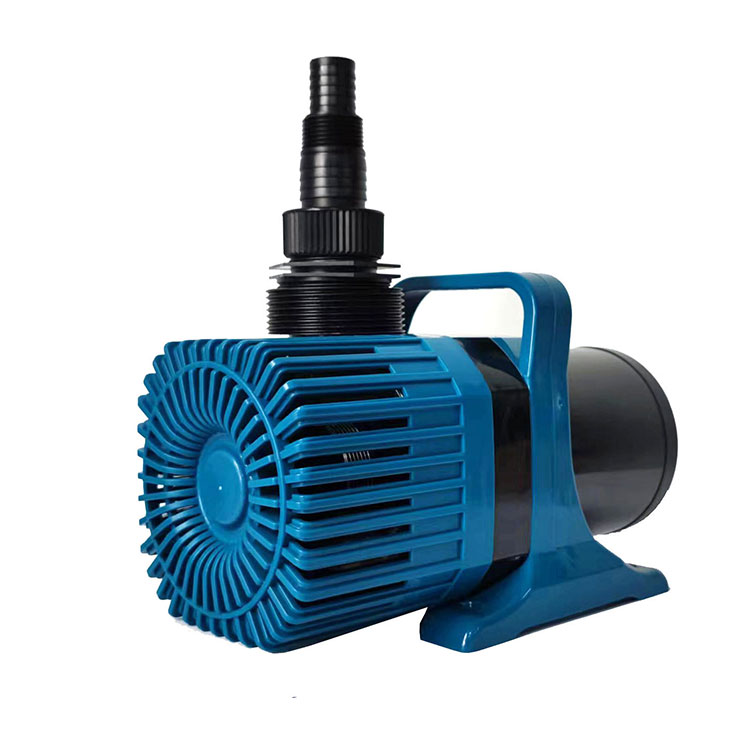Garden Water Pumps: Essential Tools for Efficient Irrigation and Water Management
2024-08-21
A flourishing garden requires more than just sunlight and soil—it also needs a reliable water supply. Garden water pumps are indispensable tools that help ensure your plants receive the right amount of water for optimal growth. Whether you’re managing a small backyard garden or a larger landscape, understanding the benefits and types of garden water pumps can enhance your irrigation strategy and make gardening tasks easier. This blog delves into the importance of garden water pumps, explores different types, and offers tips for choosing and maintaining the right pump for your needs.
Why Garden Water Pumps are Important
1. Efficient Irrigation:
Garden water pumps facilitate efficient irrigation by delivering water to various parts of your garden evenly and effectively. This helps ensure that all plants receive adequate moisture, promoting healthy growth and reducing the risk of water stress.
2. Water Conservation:
Using a garden water pump can help conserve water by enabling precise control over irrigation. You can target specific areas of your garden, reducing water wastage and ensuring that each plant receives the right amount of water.
3. Convenience:
Water pumps simplify the process of moving water from a source—such as a well, rain barrel, or reservoir—to your garden. This convenience is especially beneficial for large gardens or areas where a hose might not reach.
4. Improved Plant Health:
Consistent and adequate watering is crucial for plant health. Garden water pumps help maintain a regular watering schedule, preventing both under-watering and over-watering, which can lead to plant stress and disease.
5. Enhanced Garden Features:
If you have garden features like fountains, ponds, or waterfalls, a water pump is essential for circulating water and maintaining these decorative elements. This not only enhances the aesthetic appeal of your garden but also helps keep the water clean and aerated.
Types of Garden Water Pumps
1. Centrifugal Pumps:
Centrifugal pumps are a popular choice for garden irrigation due to their efficiency and versatility. They use a rotating impeller to create centrifugal force, which moves water through the pump. These pumps are suitable for various applications, including garden irrigation and water features.
2. Submersible Pumps:
Submersible pumps are designed to be submerged in water. They are ideal for drawing water from wells, rain barrels, or ponds. Submersible pumps are known for their efficiency and ability to handle large volumes of water, making them suitable for large gardens and irrigation systems.
3. Jet Pumps:
Jet pumps are commonly used for drawing water from wells and are suitable for gardens with a need for high-pressure water delivery. They use a jet or nozzle to create a vacuum that draws water into the pump. Jet pumps are effective for both shallow and deep wells.
4. Hand Pumps:
Hand pumps are a more traditional option that relies on manual operation. They are suitable for small gardens or situations where electricity is not available. While hand pumps require more effort to operate, they can be a reliable and cost-effective choice for basic watering needs.
5. Solar-Powered Pumps:
Solar-powered pumps harness energy from the sun to operate, making them an eco-friendly option for garden irrigation. These pumps are ideal for remote locations or areas where electricity is not readily available. They provide a sustainable solution for maintaining garden water features and irrigation systems.
Choosing the Right Garden Water Pump
1. Determine Your Water Source:
Identify the source of water for your garden—whether it’s a well, rain barrel, pond, or municipal supply. Choose a pump that is compatible with your water source and capable of handling the volume and pressure requirements.
2. Assess Pump Capacity and Flow Rate:
Consider the capacity and flow rate of the pump to ensure it meets your garden’s needs. The flow rate, measured in gallons per minute (GPM) or liters per minute (LPM), determines how quickly the pump can move water. Choose a pump with adequate capacity for your garden size and irrigation requirements.
3. Consider Power Source:
Decide on the power source for the pump. Electric pumps require a power source, while solar-powered pumps offer an energy-efficient alternative. For manual operation, hand pumps are a viable option. Ensure that the power source aligns with your garden’s needs and available resources.
4. Evaluate Durability and Materials:
Select a pump made from durable materials that can withstand outdoor conditions. Look for pumps with corrosion-resistant components and robust construction to ensure longevity and reliable performance.
5. Check for Additional Features:
Some pumps come with additional features such as automatic shut-off, adjustable flow settings, and built-in filters. These features can enhance convenience and functionality, so consider them based on your specific needs.
Maintenance Tips for Garden Water Pumps
1. Regular Cleaning:
Clean the pump and its components regularly to remove debris and prevent clogging. This is especially important for submersible pumps and pumps used in water features.
2. Inspect for Wear and Tear:
Periodically inspect the pump for signs of wear and tear, such as leaks, unusual noises, or decreased performance. Address any issues promptly to prevent further damage.
3. Winterizing:
If you live in a region with cold winters, properly winterize your pump to prevent freezing and damage. Drain any water from the pump, disconnect power sources, and store the pump in a dry, sheltered location.
4. Check Connections:
Ensure that all hoses, connections, and fittings are secure and free from leaks. Tighten or replace any damaged parts as needed.
5. Monitor Performance:
Regularly monitor the performance of the pump to ensure it is operating efficiently. Address any issues with flow rate or pressure to maintain optimal irrigation and water management.
Conclusion
Garden water pumps are invaluable tools for effective irrigation and water management, offering a range of benefits from efficient watering to enhanced garden features. By understanding the different types of pumps, choosing the right one for your needs, and following proper maintenance practices, you can ensure a thriving and well-watered garden. Whether you’re managing a small backyard or a larger landscape, a garden water pump can help you achieve the optimal balance of convenience, efficiency, and plant health. Invest in a quality water pump and experience the benefits of improved irrigation and water management in your garden.



